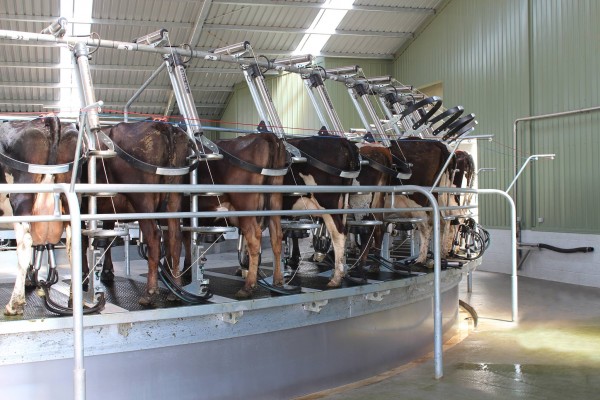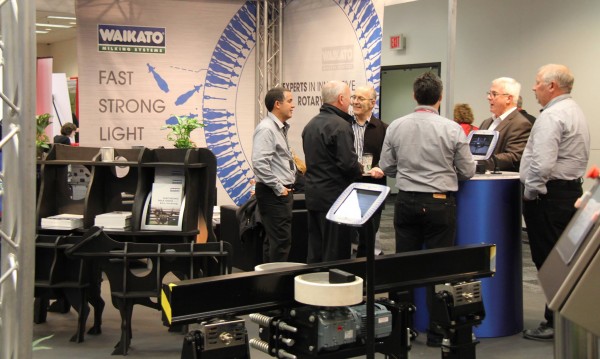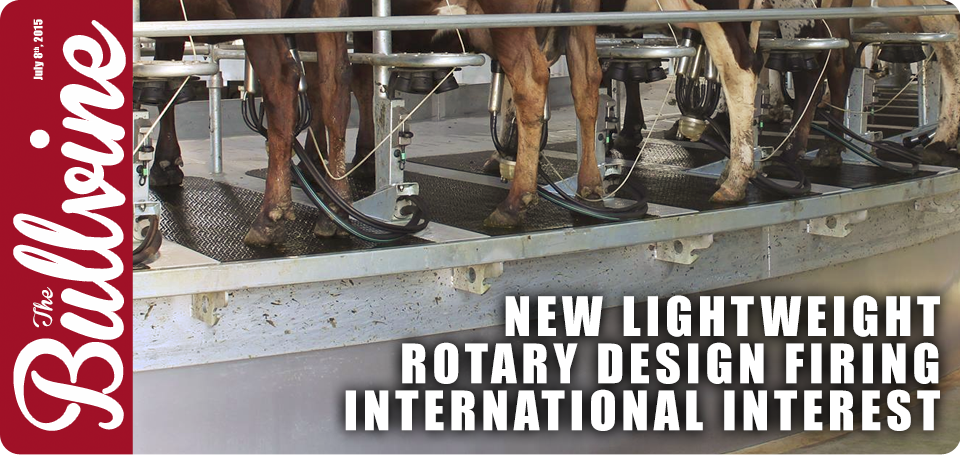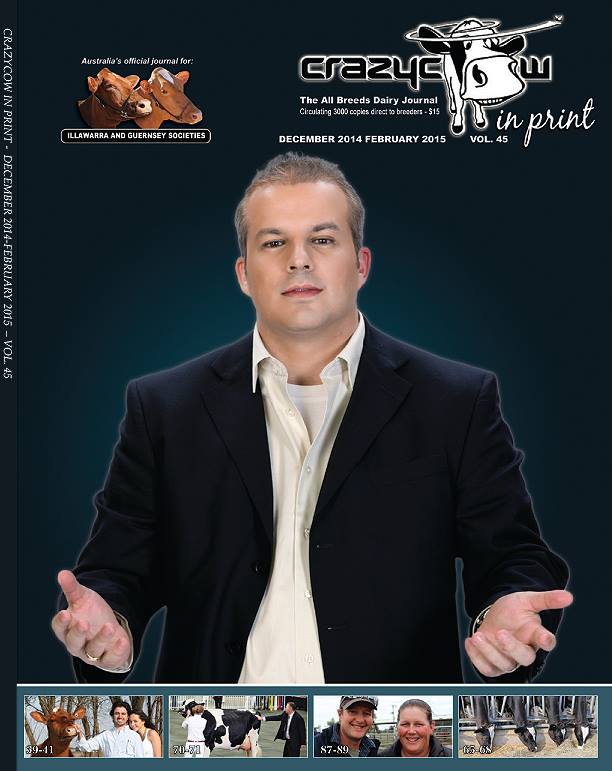A revolutionary rotary dairy platform that is 80% lighter than concrete and five times stronger will be operating in Australia within months.
The design has been patented by Waikato Milking Systems from Hamilton, New Zealand, and incorporates a product usually found in bullet-proof vests and aircraft.
Demand for the Centrus platform contributed to 40% growth in Waikato’s international business last year — principally driven from demand in the USA, the UK, China, South Africa and Australia.
Growth is expected to jump by a similar margin again this year — despite the reality that Waikato is operating in a dairying landscape struggling with disappointing milk prices.
The Centrus platforms have been the icing on the cake for Waikato’s most recent success story, but it is far from the only story. It has taken Waikato just three decades to become one of the world’s largest manufacturers of rotary dairy platforms and technology.
The Centrus platform is the latest hero in Waikato Milking Systems’ business.
The platform is made using a multi-layer laminate process that includes Kevlar®, a synthetic fibre used in a host of applications from bike tyres and racing sails to probably its best-known use: body armour. Because of its high tensile strength, Kevlar is one of the strongest man-made fibres on the market. Waikato infuses it with resin in a multi-layer design, which gives it extreme impact resistance. High profile rubber mats, that are water jet-cut in Germany, are fitted and secured into the recessed moulded platform at installation.
Kevlar’s lightness and strength has been a game changer for big dairies, says Waikato’s Chief Executive Officer, Dean Bell.
“The platform is more power-efficient, because it is so much lighter,” Dean says, “but the real gain on these systems is that a rotary platform is very much like a great, big bearing. And the more stress and load you can take out of it, the longer you can go between service intervals. It just makes a lot of sense to use modern materials that are strong and also very, very light.”
Dean says candidly that Centrus has fuelled recent international inquiry, but ultimately it has been Waikato’s ability to control design, manufacture at high quality and complete full dairy installations in house, that has completed the big picture.

The new Centrus dairy platform is 80% lighter and five times stronger than concrete. Photo supplied.
Turnkey ability a strength
The fully New Zealand-owned company is housed under one roof on 1.6 hectares in the heart of dairying country in the North Island. From there, Waikato designs, manufactures and installs everything used in the dairy – right down to the receival vessels.
Dean has been with the company 25 years, and says when it comes to milking componentry, Waikato has produced some of the most technologically advanced innovations on the market today.
“We are one of the only companies in the world that can do everything from start to finish. I actually can’t think of anyone else. With all of our divisions together under the one roof, it means we can share the common designs right down to the smallest details. There is nothing we can’t build. It’s just a matter of getting the guys together and making sure it fits.
“We have lots of pretty interesting technology and componentry that historically we’ve sold to various parts of the world. But over the last handful of years we’ve really started to get focused on our rotary expertise. And as we’ve got bigger, we started exporting complete rotary solutions.”
Big targets
He says interest in the Centrus has mainly come from big dairies – many of which are milking more than twice a day.
“The one we’ve just finished the design on is for an 84-bail dairy and, to be honest, the target audience is almost exclusively international, and it’s almost exclusively for 24-hour dairies that milk big, North American-bred Holsteins.
“The Centrus also includes the new automatic aligning pivot roller, so it’s designed for high-use dairies that never shut down. For the big international dairies, we also use steelwork that is almost three times the weight of what we use typically here in NZ or in countries that are more grazing based.”

Waikato Milking Systems had a big presence in the trade exhibits at last year’s World Dairy Expo at Madison, in the USA. The event draws 70,000 visitors from 90 countries annually. Photo: Dianna Malcolm.
Staff at the ready
For the first Centrus installation, not only did Waikato ship the ready-to-assemble dairy in four containers, it also sent its development team. So, if any tweaks were needed, they had the qualified staff on the ground to make it happen. It takes two weeks to install the platform and another two to three weeks to install the milking system.
“It’s a bit different doing it that way, but we wanted to have the designers seeing how things worked in practice,” Dean says. “Then it can be more of an engineering assembly.”
Waikato also produces conventional concrete rotary platforms, one of which – the Orbit – has an extra-wide (2.7m) deck, providing protection for the milking machine and a larger standing area for the cows. Its range of herringbone systems includes one that has a single 100mm milk pipe, which drains into a receiver at the end of the pit, making milking fast and uninterrupted.
Innovation award
Dairy componentry remains an important part of the business.
“Earlier this year we introduced an electronic milk meter which won the Supreme Award at the Plastics Industry Design Awards. It’s the most accurate meter on the market, giving farmers real-time information on the production of each cow.”
Dean adds that the company’s SmartD-TECT mastitis identification technology continues to be one the simplest and most accurate ways to find mastitis in individual quarters early, with the system alerting the operator. More company innovations were expected to be unveiled at the New Zealand Fieldays, in Hamilton, in June.
“We understand farmers don’t want to invest in large capital items which become outdated, so future-proofing is factored into everything we do.”
Confidence builds quality
Dean says Waikato’s focus continues to be on customer satisfaction.
“We have grown in confidence over the years. We’re building very high quality products that are very innovative, in a space where no one has operated before.
“And so, to a certain extent, I think we are pretty good at this and we’re very, very fussy. We find when we bring customers from around the world to our office – and they go through the factories and meet with us – they almost always buy.
“So, we’re not really selling in that sense. Typically they have seen a lot of our competitors already, and if they are buying from us then we’re not doing too badly. And they are making an informed decision. If we’re not the right decision, then we’re not the right decision. We want people to get to the end of any major project and feel that we were decent to deal with.
“Ideally, it makes sense for our clients to make a quick trip to New Zealand – and, it’s not the worst place in the world to visit.”
This article first appeared in the June – August 2015 Edition of Crazy Cow in Print. Click here to check out there Facebook group.














Leave a Reply
You must be logged in to post a comment.